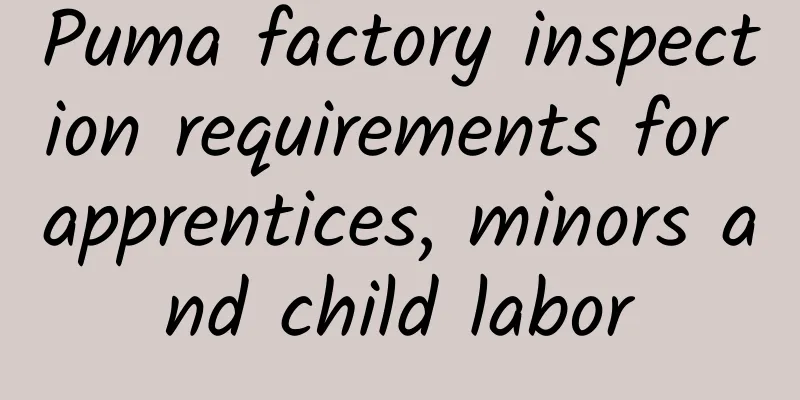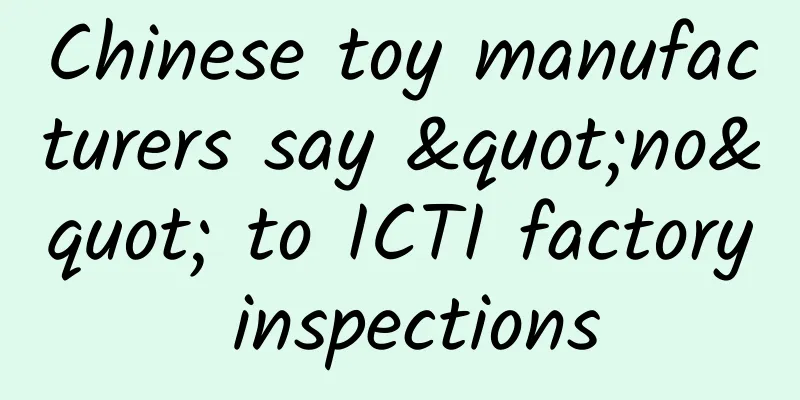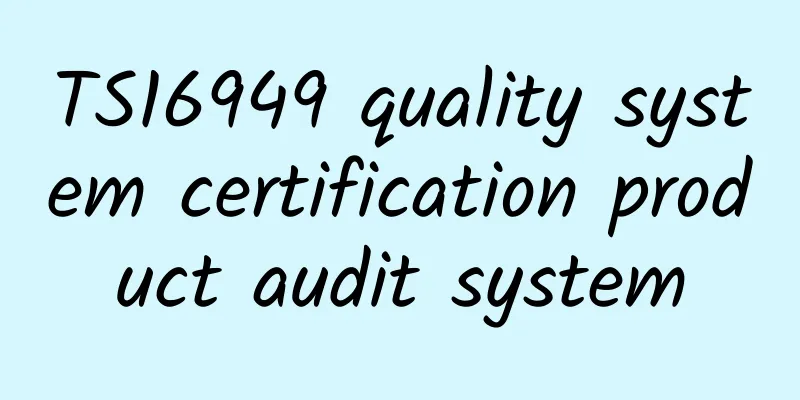Puma factory inspection requirements for apprentices, minors and child labor

|
In addition to health and safety aspects, the social responsibility labor manual published by Puma during its factory inspection also includes requirements for child labor, underage workers, and apprentices of its suppliers. 1. Apprentices: (1) Factories must ensure that all employees hired as apprentices comply with legal requirements, such as working hours (work time used as theoretical guidance), training period (should not exceed the time required by law), salary, working conditions (no contact with harmful substances, no heavy physical labor), etc. (2) The age of apprentices must comply with PUMA's Code of Conduct. (3) The factory should sign a written agreement with the apprentice (and his/her parents), indicating the start and end dates of the apprenticeship period. (4) The apprenticeship program is only applicable to (but not limited to) some skilled positions, such as machine operators, mechanics, electricians, etc. Therefore, positions without special skill requirements should not be included in the apprenticeship program. (5) The total number of apprentices shall not exceed 10% of the total number of factory employees. 2. Regarding underage workers: (1) Factories should arrange for underage workers to register with the local labor bureau. (2) Obtain written permission from parents. (3) In any case, the factory should arrange free medical examinations for underage workers before they start working, and at least once a year thereafter until the worker reaches the age of 18. (4) Factories shall not arrange for underage workers to perform heavy physical work, dangerous work, or work involving contact with hazardous substances. (5) Factories should comply with local laws, such as restrictions on working hours for underage workers (including normal work, night shifts and overtime). 3. On child labor: (1) Factories must not use or support the use of child labor in any of their activities, including apprenticeship programs and subcontracting processes. (2) Once a factory is found to employ child labor, it should take appropriate remedial measures to support the child to complete compulsory education. (3) Factories must ensure that all employees’ personnel files contain valid proof of age. (4) PUMA does not allow home workshops because it cannot effectively control the child labor situation there. |
<<: The reason why Chico's factory inspection consultation is super network
>>: Customer factory audit - Chicos factory audit behavior standards
Recommend
How is Kahan International Logistics? What are the advantages of Kahan International Logistics?
How about Kahan International Logistics? Guangzho...
McDonalds actively explores ways to increase performance
After the fast-food chicken incident some time ag...
How is Hong Kong Feng Investment? What are the advantages of Hong Kong Feng Investment registered in Hong Kong?
How about Hongfeng Investment? Shenzhen Gangfeng ...
Xinshen Group Co., Ltd. successfully passed Li & Fung's factory inspection
Xinshen Group Co., Ltd. is located in Zhenze Town,...
How can Wenzhou's cross-border e-commerce develop better and faster?
In recent years, more and more Chinese companies ...
Common problems in BSCI factory audits
What are the problems that are easy to occur duri...
How is Tokopedia? How to open a store on Tokopedia
Tokopedia is Indonesia's largest and most tra...
What is Pepsi? What services does Pepsi provide?
What is Pepsi? BEST is an innovative smart supply...
How is Japan Sitong Transshipment? Why choose Sitong Transshipment?
Japan Sitong Transshipment has set up a warehouse...
Why does Walmart's ES factory inspection give a yellow light for the first time?
We know that Walmart factory inspections are gene...
Is eBay easy to do business? Which one is more reliable, Amazon or eBay?
Is eBay easy to do business? To start with this q...
Common equipment safety issues and solutions during BSCI factory audit (II) High-speed pulley of sewing machine without protective cover
Problem phenomenon: The sewing machine high-speed...
How much does it cost to open a store on eBay? How can eBay products infringe copyright?
How much does it cost to open a store on eBay? 1....
How to recover deleted emails in Outlook?
For emails accidentally deleted in Outlook, you c...
What is Postman Pony? What services does Postman Pony have?
What is the Postman Pony? Postman Pony is a one-s...









